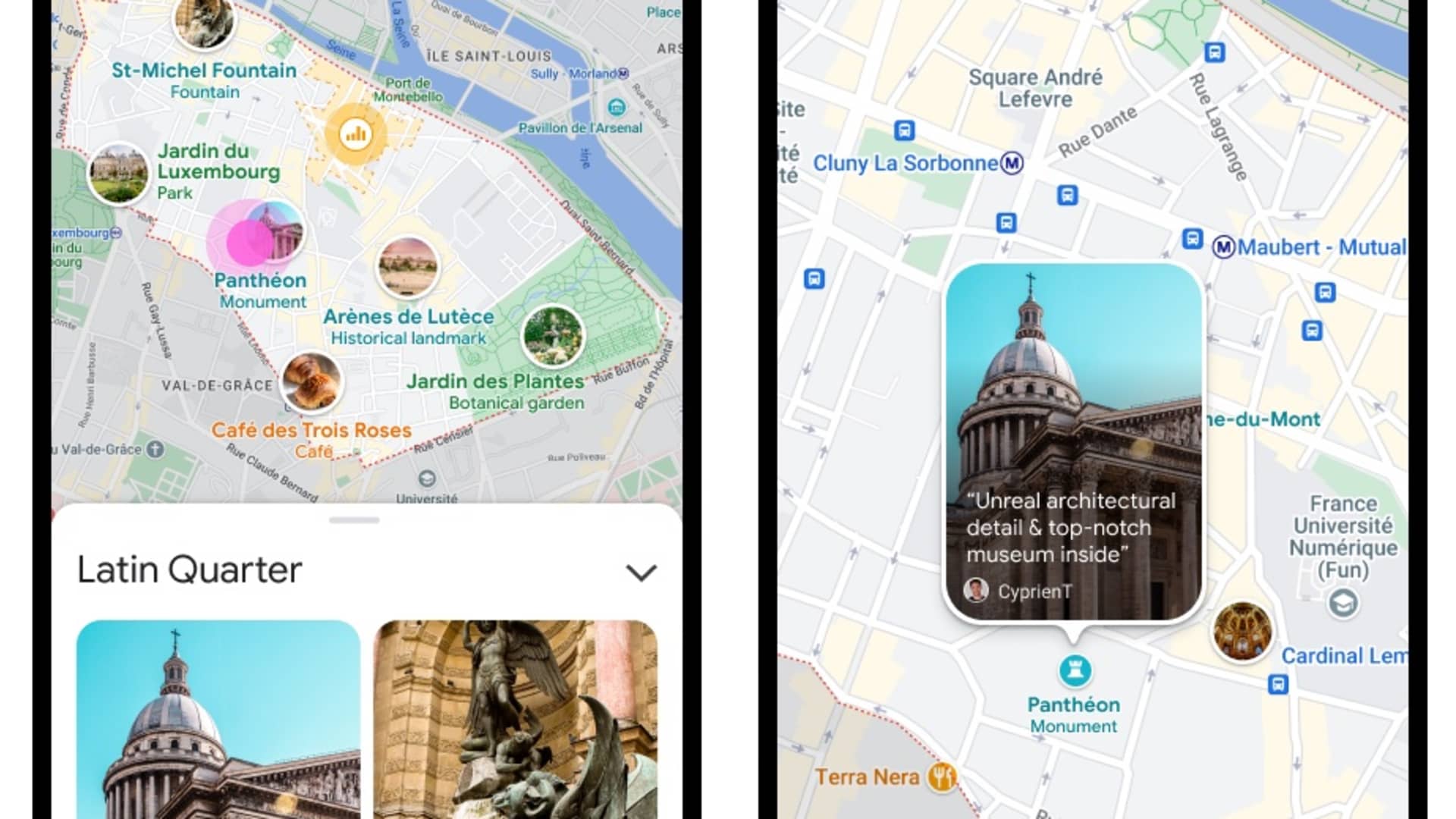Google now says it has enough local data to predict a neighborhood’s “vibes” in search results.
The company is launching “immersive views” and “vibes” for some locations, adding more details in visual form so that users will be able to explore locations before they visit, Google said at its third annual Search On event Wednesday.
The latest updates come as the company tries to draw users to spend more time on its search results pages, rather than jumping off to other sites. It’s part of the way Google is more tightly integrating maps data as it redesigns its search features to go beyond text and images. Search advertising is still one of the company’s largest sources of advertising revenue, which totaled $56.3 billion last quarter.
For searches on cities, the company said Wednesday that it is adding more search result options, including pronunciation, history, beaches and culture. Users may see visual stories and short videos from people who have visited the city, as well as tips on exploring and things to do, the company said Wednesday.
For “vibes,” Google executives said users will soon be able to zoom into a neighborhood and a restaurant to “get a feel for what it might be like.” It also allows them to view data on what they could expect for how busy it might be, based on Google’s crowd-level data from that business, and what the weather may be like on any day they’re planning to arrive.
“You can quickly know if a neighborhood is artsy or has an exciting food scene so you can make an informed decision on how to spend your time,” the company said.
The features combine artificial intelligence with local data from Google Maps users who add more than 20 million “contributions,” including reviews, photos and videos, the company said. It’ll roll out globally in Android and iOS in coming months.
Google also launched real-world aerial views of global landmarks. To start, it will have “photorealistic” aerial views of 250 landmarks and will be launching in Los Angeles, London, New York, San Francisco and Tokyo in the coming months, executives said. The “immersive view” will be able to combine aerial views with weather, traffic and crowds data.
The photorealistic imagery is a “huge” step forward for the company’s maps product, said Chris Phillips, who runs the Google Maps business unit, known internally as Geo.
Executives did not say whether or how it will display ads in the new features.

